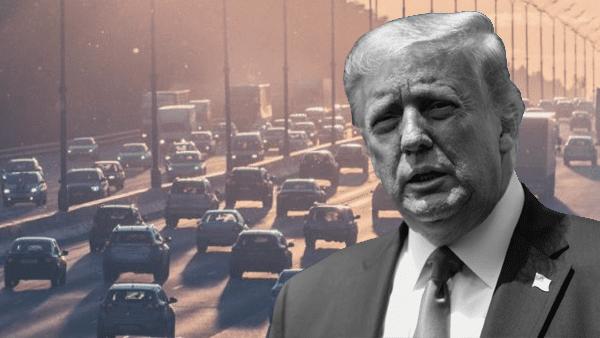On Monday, the U.S. court of appeals overturned the rollback of fuel economy regulatory penalties that were implemented under the Trump administration. The ruling comes five months after it was announced and was based on the determination that the National Highway Traffic Safety Administration (NHTSA) was excessively delayed in concluding that CAFE penalties were unreasonable.
The Safer Affordable Fuel-Efficient (SAFE) Vehicles Rule was implemented March 31, 2020, modifying the requirements for corporate average fuel economy and CO2 emissions standard for the next six model years. Rather than complying with the original emission standards improvements of approximately 5 percent annually, it would reduce the CAFÉ and CO2 emissions improvement requirements to just 1.5 percent.
According to the March NHTSA press release, “The SAFE Vehicles Rule reflects the realities of today’s markets, including substantially lower oil prices than in the original 2012 projection, significant increases in U.S. oil production, and growing consumer demand for larger vehicles.”
Unanimous Judgment Against Rule
The three judges hearing the case in the U.S. Court of Appeals for the Second Circuit decided 3-0 that the SAFE Vehicles Rule was more than two years delayed, and that NHTSA was not operating within their scope by changing the standards.
Circuit Judge William Nardini wrote, “We reject NHTSA’s argument that, at the time it issued the 2019 Final Rule, it was permitted to reverse the penalty increase on the grounds that the increase would create a ‘negative economic impact’ … We need not reach the merits of NHTSA’s conclusions regarding negative economic impact because it was not authorized to undertake this reconsideration at the time it did so.”
Where CAFE Standards Stand Now 
The overturned Trump administration rollback means that penalties will be consistent with the CAFE standards under the Obama administration. The goals of that policy were not just to reduce greenhouse gases and tailpipe emissions, but to make operating cars more affordable for owners in the long term. And since the rules applied to all models, it would preserve the customer’s choice since the disparity between fuel efficiency and vehicle size would not grow.
It would appear that the rule to raise fines from $5.50 to $14 per 0.1 mile per gallon of fuel consumption beyond the standard will be in effect. It sets the fleet-wide fuel economy for the 2021 model year at 40.3 to 41.0 miles per gallon. With the SAFE Vehicles Rule, NHTSA argues that the previous standards are unattainable and unduly increase the cost of cars for consumers.
Related: Trump vs Biden: What Are their Plans for the Auto Industry?
How It Affects Auto Retail
The NHTSA estimated in their March press release that the average new car price would decrease by around $1,000 with the adjusted standards, helping Americans replace their aging cars with safer models that produce fewer emissions. They also argue that the reduced regulatory costs will help boost vehicle sales by up to 2.7 million units through 2029.
However, that’s in the current climate where oil prices are experiencing a severe depression. ExxonMobil prices have toppled and has been replaced on the S&P Dow Jones Indices after a 92-year run. As well, higher electrification adoption in coming years could keep oil prices suppressed, keeping cars affordable and offsetting the penalties associated with CAFE standards.
At the moment, the ruling to repeal the SAFE Vehicles Rule doesn’t look like it will have an immediate impact on the auto retail environment. Going forward, new car prices could see a modest bump as vehicles have an increasingly tough time meeting fuel efficiency goals.
Did you enjoy this article from Jason Unrau? Read other articles from him here.
Be sure to follow us on Facebook and Twitter to stay up to date or catch-up on all of our podcasts on demand.
While you’re here, don’t forget to subscribe to our email newsletter for all the latest auto industry news from CBT News.








